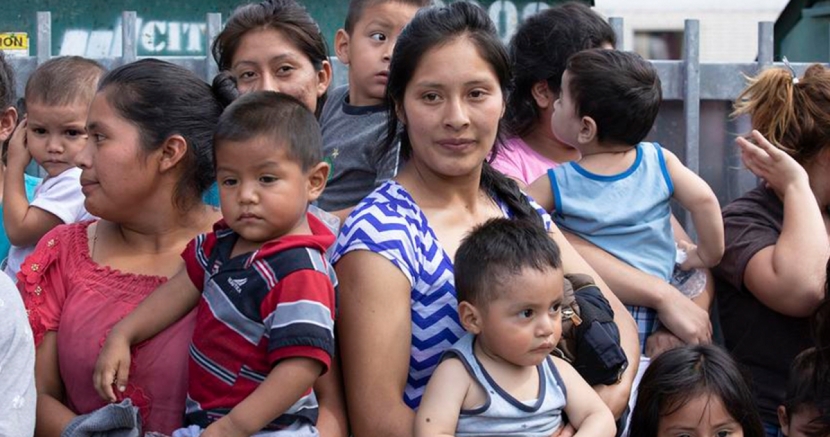America's Immigration Crisis: A Monster of Our Own Making

Over the past several years, our country has found itself embroiled in a divisive debate over immigration and border security. While some may argue that the crisis coincides directly with the number of people crossing the border, the true crisis relates to the humanitarian issues at our border and across the world.
And because of this reality, we must also face the consequences of our own actions and take responsibility for the use of our armed forces abroad. As a nation that portrays itself as a beacon of hope and possibility, we must accept our role in the immigration crisis unfolding at our own borders.
Over roughly the past 30 years, the sheer number of military interventions conducted by our country is staggering. Since 1991, the United States has launched 251 military interventions, according to official Congressional Research Service data. This leaves us at a crossroads in modern society, where it is easier to identify countries the United States has intervened in, than those we have not. So, as we grapple with this crisis at our border, we must also wrestle with the reality that many of those seeking refuge in the United States hail from countries that have experienced U.S. intervention.
For a clearer perspective, let's consider the Migration Policy Institute's data, which highlights Mexico, El Salvador, and Guatemala as the countries with the largest percentage of undocumented immigrants in the United States. Mexico, our longstanding partner to the south, has been dealing with the consequences of US immigration policies such as Title 42 and Migrant Protection Protocols (MPP)—often referred to as the “remain in Mexico” policy.
El Salvador, with the second largest undocumented population in the United States, is a country grappling with its own set of challenges. According to the United States Armed Forces abroad report, the U.S. intervened as recently as 1981. More so, during the Cold War, in an effort to eliminate communism, our government incited a history of violence and civil conflict that El Salvador still grapples with today. According to The Guardian, this conflict devastated the country's economic base and democracy, leaving a militarized society which allowed gangs such as MS-13 to fill the void. These are the unfortunate consequences of our international policies, which have also led to the immigration and humanitarian crises we face today.
That same article also states that Guatemala's 36-year civil war, from the 1960s to the 1990s, started with a 1954 coup supported by the US against democratically elected President Jacobo Árbenz. This support of the Guatemalan military led to, what the Guardian article called, genocide against the native population, resulting in approximately 200,000 deaths between 1960 and 1996. This along with Guatemala’s current civil unrest as well as our intervention as recently as the 2020s is another example of how our international policies have exacerbated our own domestic issues.
These are the consequences of U.S. interventions. This is how our past foreign policy decisions are deeply intertwined with the current immigration crisis. From the pervasive issues of crime and violence driving many to seek safer shores, to countries being scarred by a history of conflict and the struggles with internal displacement and a lack of economic opportunities pushing its citizens toward the promise of a better life in the United States, this is our legacy. We have all bore witness to how the challenges of political instability abroad have impacted us at home.
With that in mind, it is crucial to recognize that our interventionist policies can not only destabilize foreign nations but also set in motion a chain of events that ultimately impact the United States. As we extend our military reach across the globe, we become entangled in the aftermath, dealing with the repercussions in the form of an immigration crisis. The seeds of discontent sown in the wake of interventions sprout into waves of migrants seeking refuge on American soil.
As a nation, we must confront the harsh reality that our actions reverberate across borders and can have both positive and negative consequences. Pointing fingers at those seeking a better life within our borders without acknowledging our role in their plight is not only hypocritical but counterproductive. To address the immigration crisis, we must reassess our foreign policies, acknowledging the interconnectedness of global issues and understanding that stability abroad contributes to security at home
The path forward involves a comprehensive approach that combines diplomacy, economic assistance, and a commitment to human rights. Instead of perpetuating a cycle of intervention and destabilization, we must invest in long-term solutions that address the root causes of migration. We can no longer ignore the consequences of our responsibilities nor our responsibilities. That’s the only way we can fix the crisis at the border.
DONATE
Your donation supports our media and helps us keep it free of ads and paywalls.








